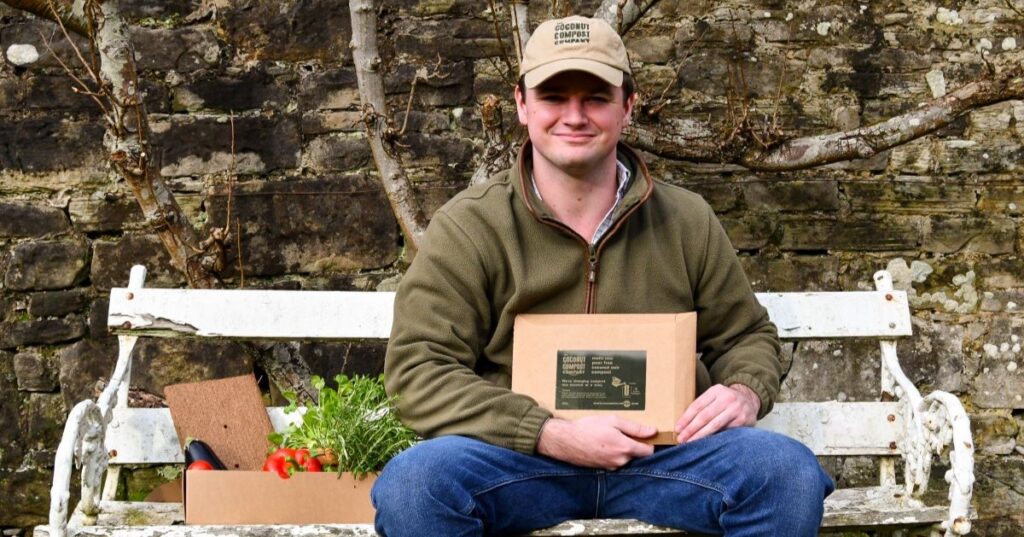
The Coconut Compost Company: Coconut husks are being used an alternative to peat
Sponsored Content | As farmers look to move away from the unsustainable use of peat, many have turned to a rather unusual product as an alternative.
Previously a waste product, many farmers across the UK have discovered that coconut husks could be the answer to their environmental needs.
The coir has excellent water-holding abilities and its mix of fine and coarse fibres makes it light and porous, which provides good growing conditions.
One of the most significant benefits of coco husk is its ability to improve soil quality and promote healthy plant growth.
It absorbs 30% more water than peat, provides quick harvests and bigger yields and can be reused up to three times.
And now one Scottish businessman is hoping to help everyday gardeners make the switch to the more sustainable coconut husks.
Wilf Weir started The Coconut Compost Company last year after he came across coconut coirs while studying in Sri Lanka, a country he has close connections with.
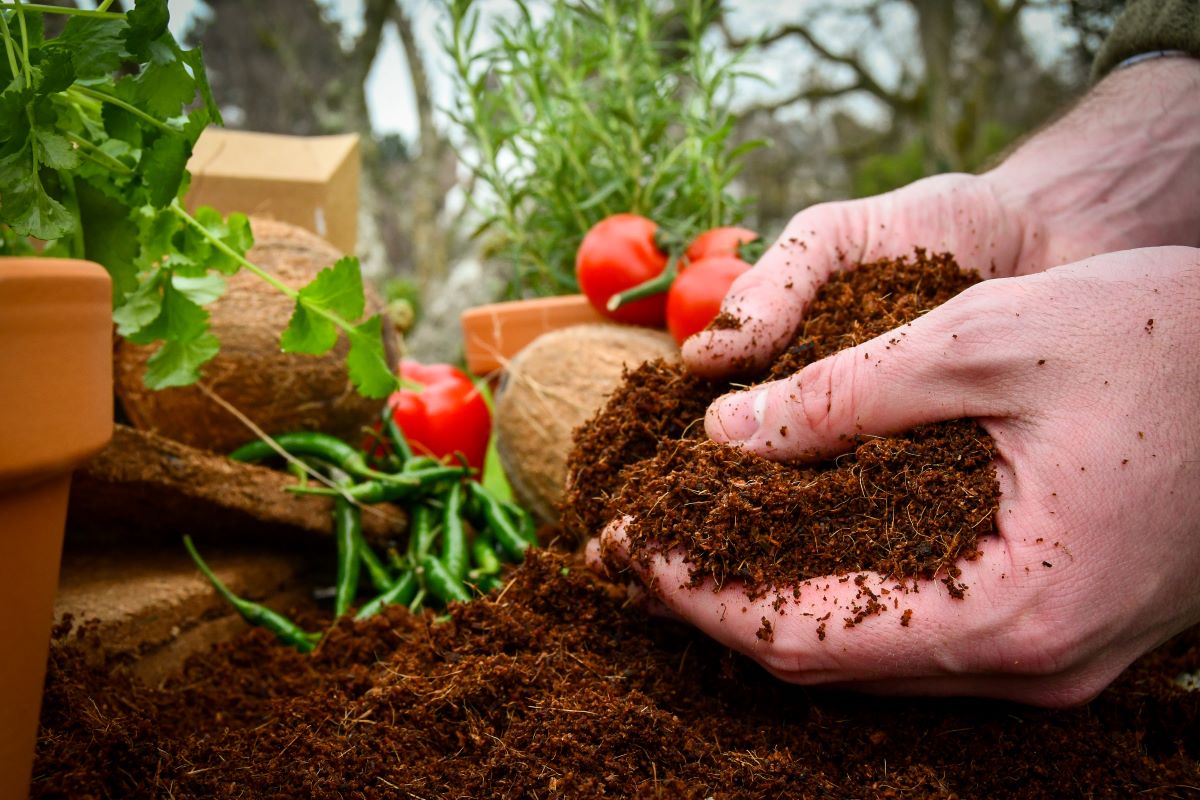
It absorbs 30% more water than peat, provides quick harvests and bigger yields and can be reused up to three times.
‘My great grandfather moved to Sri Lanka to work in the early 1900s.
‘He fell in love with this tropical island paradise and its friendly people and decided to make it his home where he met his wife, who had left England to become an art teacher.
‘Together, they welcomed my grandfather, who in turn made Sri Lanka his home. Sri Lanka is also where my father was born.
‘This love of Sri Lanka was passed down through the generations, and I decided to explore my roots and spent a month on the island before starting my degree.
‘Later, while on my six-month placement from university, I returned to the island, helping to set up a Nai Miris (Scotch Bonnet Chilli) farm in the Knuckles Mountain Range.
‘Whilst there, I discovered that local farmers were using a fantastic eco-friendly material called coir (coconut fibre) to grow their crops, and with incredible success.
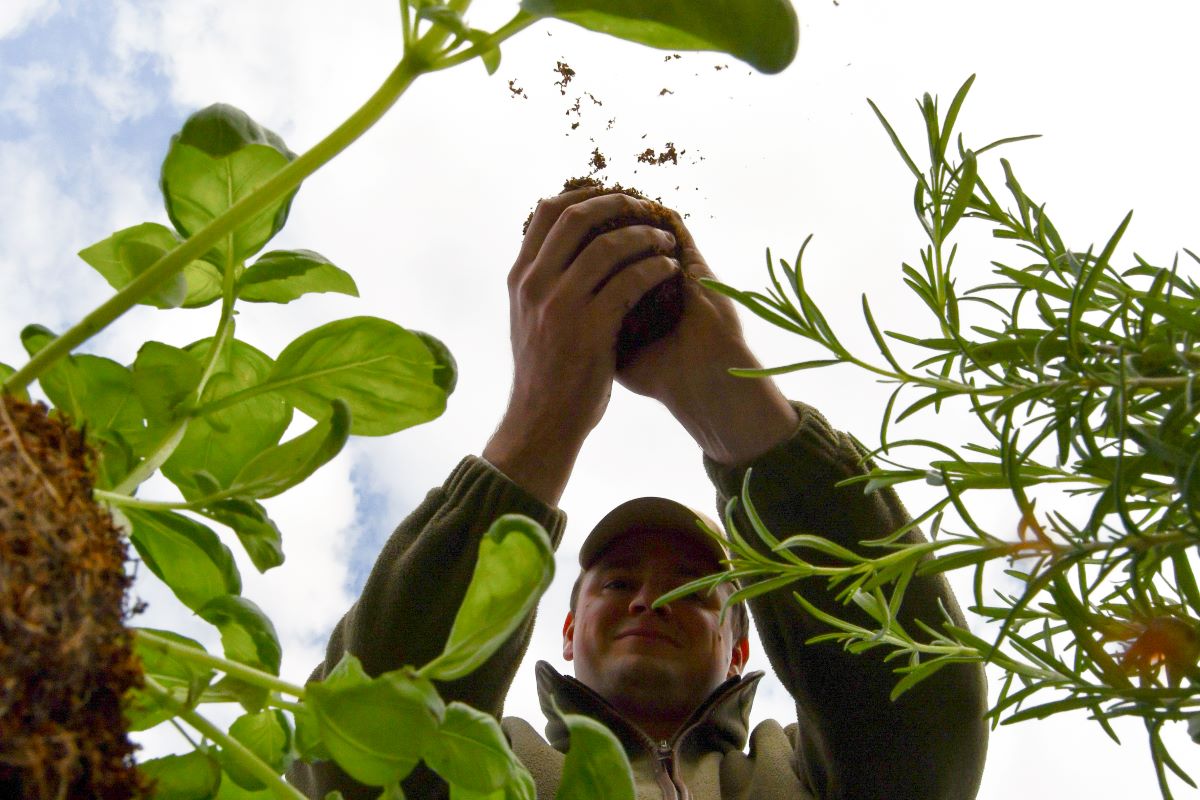
Wilf said many gardeners are unaware of this sustainable alternative.
‘A waste product from coconut production, this material was 100% sustainable, organic, biodegradable, peat-free and in abundance on the island.
‘When I returned to the UK, I found many of my friends who are soft fruit farmers in Angus who are already using coconut husks.
‘It’s a product that is popular all over the world now, in Australia and particularly in the Netherlands.
‘And people are not just using it because of its eco credentials, it’s because it is better for the plants. It significantly helps root growth which in turn creates stronger plants.’
‘But many gardeners are unaware of this excellent sustainable alternative.
‘That’s where the idea for The Coconut Compost Company was born. I set the business up because I wanted the average gardener to be able to make use of it too.’
The coconuts are harvested from Sri Lanka, then washed, processed, and compressed into the raw coir material in an eco-friendly and ethically sound factory.
They are then delivered directly to the UK by boat. And although the husks are imported from Sri Lanka, Wilf meticulously treats the husks to eliminate unwanted salts and compress them, thereby minimising the product’s carbon footprint.
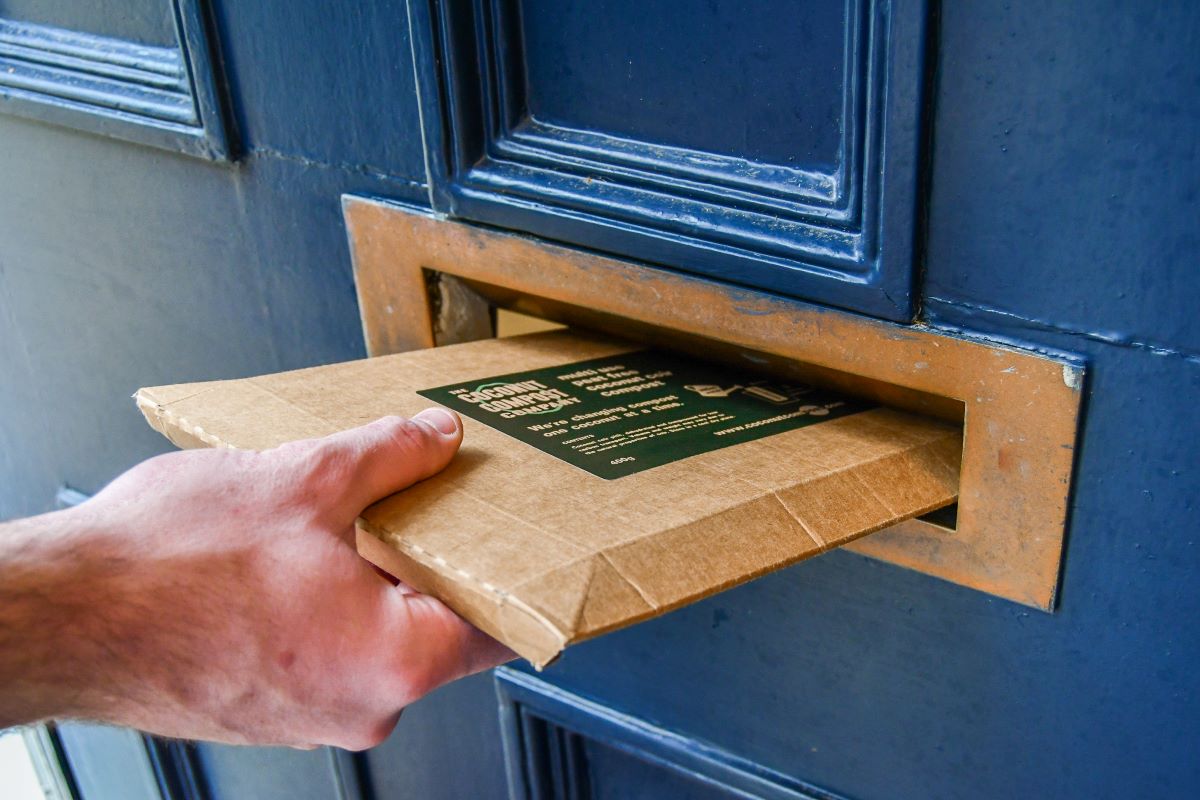
The Coconut Compost Company delivers the product straight to your door.
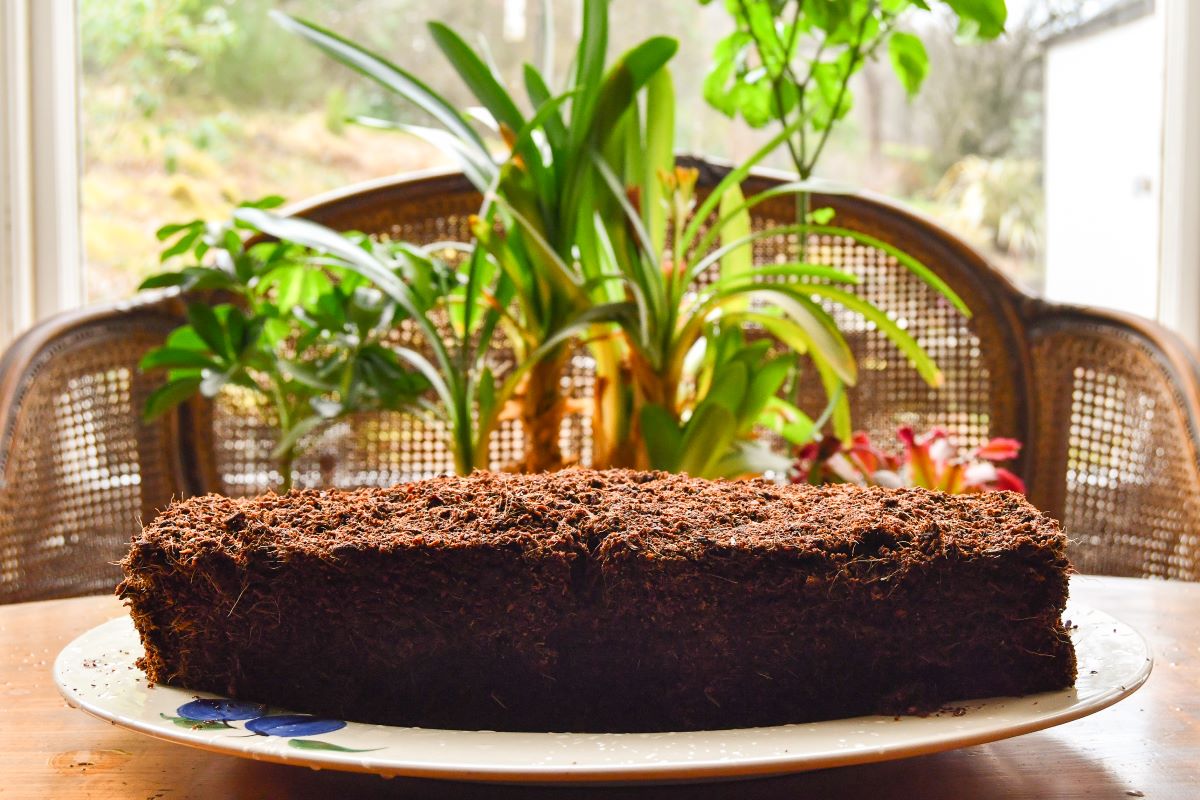
Simply add water and marvel at your compost rapidly expanding.
The Coconut Compost expands to five times its size to make it easier for customers to carry and store.
Their 70 litre compost weighs 5kg whereas an average 40 litre bag of compost weighs around 29kg, according to Wilf.
The Coconut Compost Company delivers the product straight to your door and it can be used for planting both indoor and outside.
Simply add water and marvel at your compost rapidly expanding before your eyes within minutes.
Incorporate it into your herbs, vegetables, houseplants, or seeds—it thrives alongside virtually anything you plant.
In a bid to give back to Sri Lanka, a country Wilf has a long history with, he will donating 10% of his profits to charities supporting people in the country.
‘As beautiful as this island country is, it has faced natural disasters, political unrest and economic problems that have left around seven million people in urgent need of humanitarian aid according to the UN,’ Wilf said.
‘Parents struggle to find jobs; children are surviving on one meagre meal per day and schools cannot provide enough materials for their students.
‘For these reasons, we are passionate about supporting the people of Sri Lanka. We will donate 10% of our profits to charitable organisations chosen by you, support the local community and provide jobs to locals.
‘We also ensure our suppliers adhere to international environmental regulations and are free from child labour.
‘Every purchase of coconut compost you make will help support these people.’
Find out more here.
Read more News stories here.
Subscribe to read the latest issue of Scottish Field.
TAGS

